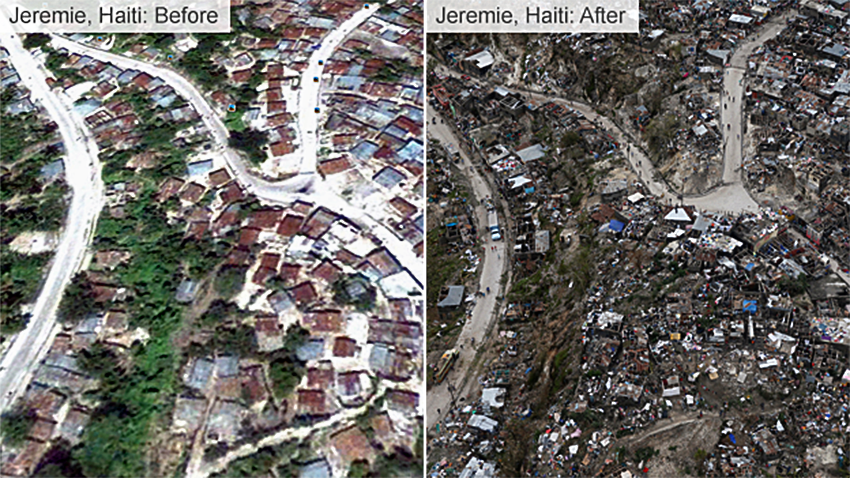University of Notre-Dame and University of Florida Joint Hurricane Damage Survey for Haiti
Published on November 18, 2016

UF Associate Professor of civil engineering Dr. David O. Prevatt will join a Notre Dame University post-hurricane damage survey team to assess damage to masonry buildings in Haiti following last months Hurricane Matthew. Dr. Prevatt leads a UF team which will travel to Haiti on 19 November 2016 and join Team Leader Associate Professor Dr. Tracy Kijewski-Correa and other University of Notre Dame faculty (Assoc. Professor Andrew Kennedy, and Dr. Alexandros Taflandis), and Dr. Scott D. Schiff, Director of Projects of Applied Technology Council. The team will conduct a multi-hazard investigation of the performance of structures affected by the extreme winds and storm surge from the hurricane. They will work along the south coast of the Tiburon Peninsula from Les Cayes to the extreme western tip, including the hard-hit towns of DameMarie and Jérémie, located where the eye of Hurricane Matthew made landfall on 4 October 2016 as a Category 4 Hurricane with maximum sustained wind speeds of 145 mph.
The damage assessment team will evaluate the respective roles that high winds, storm surge and inland flooding played in the structural performance of buildings. This research is important as it provides an opportunity to see whether improved seismic detailing following the 2010 earthquake has had any improvements in performance following Hurricane Matthew. Ultimately, the team anticipates results will lead to research to improve normal load-bearing masonry walls within a multi-hazard context and save lives, while also reducing property damage.
The research will be partially supported by the National Science Foundation through an NSF RAPID award, and the Universities of Notre-Dame and Florida. The experienced team members will utilize their collective reconnaissance experience in order to document conditions using GPS-enabled cameras, cameras mounted on unmanned aerial vehicles (UAVs), and by interviewing residents to obtain first-hand accounts of the experience. This timely deployment is essential because the data is considered highly perishable, as clean up begins and memories start to fade.
The damage assessment team will spend the Thanksgiving Week in the field gathering data, (returning on 26 November 2016). Following this deployment, data analysis and dissemination will be done in the subsequent months, to document the performance of these structures in the rare context of a multi-hazard event. This work will provide further insight into construction systems that offer the best resilience against natural disasters, and help develop solutions that support a community-owned commitment to sustainable and resilient building practices for communities in Haiti and worldwide.
Related Links
Follow along daily via David Prevatt's Blog and/or Twitter Feed where he will be postings as time/connectivity allow.
Contacts:
- Tracy Corea, University of Notre Dame, tkijewsk@nd.edu (Team Leader)
- David O. Prevatt, University of Florida, dprev@ufl.edu, @DavidPrevatt2







